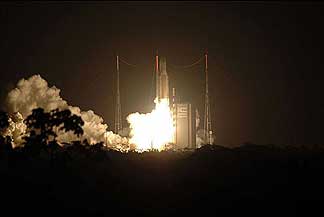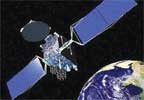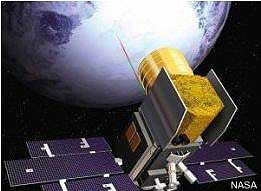
Galaxy 15 Launch
Washington-headquartered Intelsat foresaw this as a final attempt to shutdown Galaxy 15, which was unsuccessful. Now the satellite is approaching AMC-11. "There is no active testing of the payload," the company said in its Tuesday statement. In fact, this sat has taken up space in the same orbit as another C-band satellite, the AMC-11 spacecraft operated by SES World Skies, which sends cable programming to households across the U.S. (Some have speculated this may cause interference around May 23, which is the when the finale of ABC’s ‘Lost’ is scheduled to air.)

"Intelsat fully coordinated with neighboring operators the timing and the effects of this testing to neighboring spacecraft. It is our current understanding that no SES AMC-11 customers were affected by the disabling attempt," Intelsat said.

From that point on it is forecast that around June 7, the Galaxy 15 will leave the AMC-11 orbital slot, and Intelsat is looking for another opportunity to work the renegade sat at there will be no C-band satellite at the next orbital station of 129 degrees west.
Intelsat has been taking information and advice from other satellite operators and manufacturers that have experience with in-orbit problems.
The timeline looks to Galaxy losing Earth orientation in late July or early August. When this occurs its solar arrays will lose their lock on the sun, subsequently the satellite's batteries will drain, and the satellite will, of its own accord, shut down.

